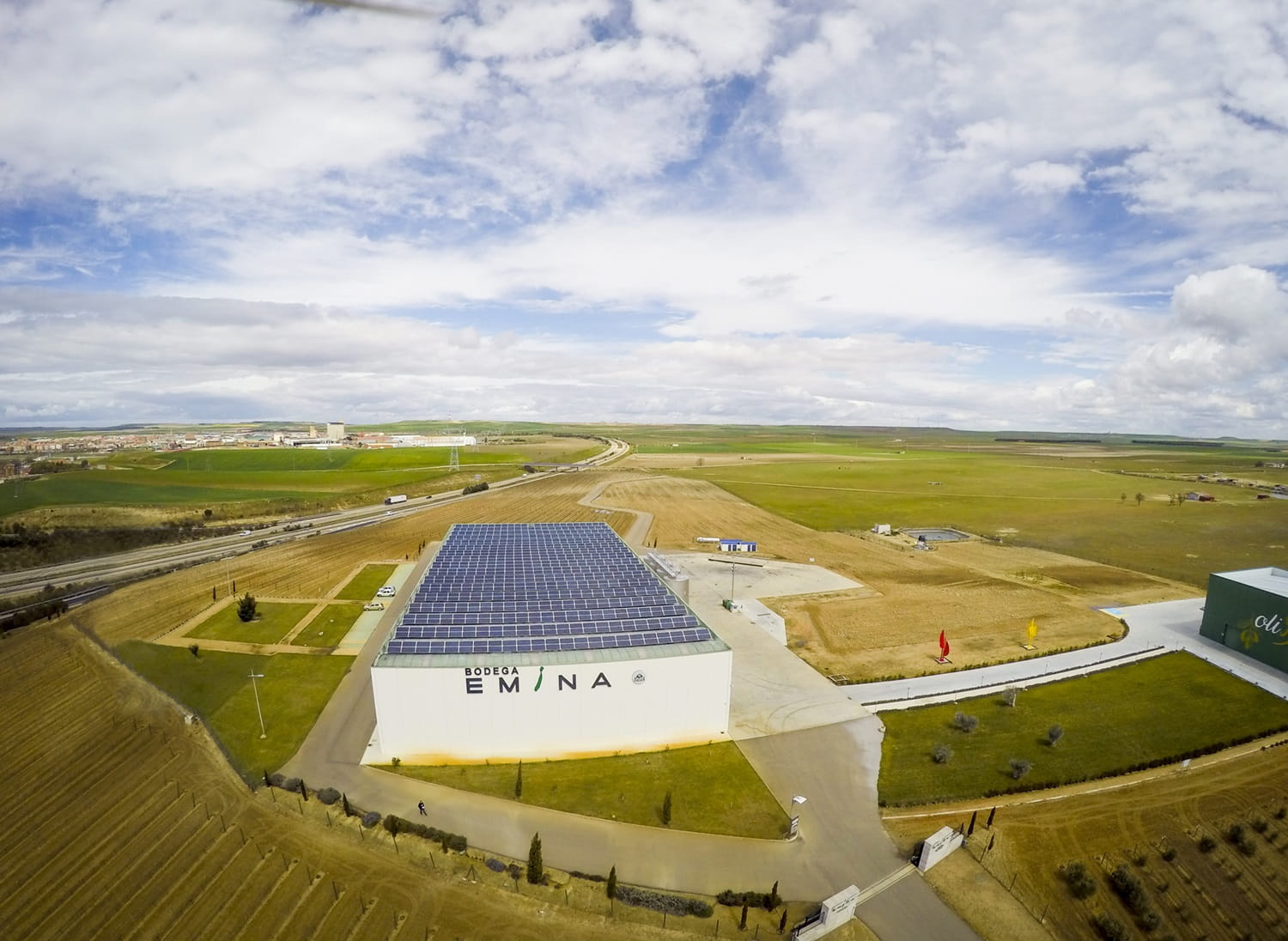
Tomorrow is World Nature Day and, in keeping with the company’s drive to protect and improve the environment, Bodegas Familiares Matarromera has emphasised its commitment to protecting nature through its Matarromera Sustainability on Planet Earth plan.
One of the elements of the plan that the Valladolid group has most strongly emphasised is investment. In the last ten years, it has continuously invested €1.6 million in installing photovoltaic solar energy facilities and this year it invested an additional €414,200. This means that by the end of 2018 the company will be capable of generating a power output of 1 MW through this type of energy, an annual production of 1.3 M kWh, which will prevent the release of 505 tonnes of CO2 into the atmosphere every year.
This is made possible by actions such as installing active systems – for example, solar panels – to ensure energy saving and reducing the consumption of fossil fuels, and in doing so generating the energy required for the company’s own consumption in the productive processes involved in its wineries, restaurant, molecular deconstruction facilities, polyphenol extraction plant, oil press, distillery and other areas. 75% of this energy will be obtained in the wine cellars and facilities and 25% will be obtained from the field. The energy will be used for agricultural processes, the area in which the winemaking company will focus the majority of its investments in 2018. 53% of the savings in emissions will originate from the wine cellars that Bodegas Familiares Matarromera owns in the Ribera del Duero Denomination of Origin (DO), 25% will originate from Rueda, 15% from Cigales, 6% from Rioja and 1% from Toro. In 2017, the wine cellars of Matarromera, Emina Ribera, Emina Rueda and Valdelosfrailes had a total aggregated consumption of 1,882,215 kWh. Of this quantity, 27% (504,661 kWh) was self-generated by the photovoltaic solar energy system.
The company recently signed up to the ‘Ten-Point Comprehensive Sustainability Plan for the Agriculture and Food Industry’ and in doing so demonstrated its commitment to improving its level of sustainability in a continuous and proactive manner, following ten basic principles established by the MAPAMA (Spanish Government Ministry for Agriculture, Fisheries, Food and the Environment).
Key milestones of an environmental leader
One of the founding principles of Bodegas Familiares Matarromera, since its very beginnings, has been its strong commitment to the environment. To this end, it has adopted a series of initiatives which revolve around the principles of sustainability, such as the special protection of the environment, the fight against climate change, the encouragement of innovation and research in the winemaking industry, the active participation of interest groups and the creation of healthcare products.
We will now outline some of the most important achievements in this area:
- The “Matarromera Sustainability on Planet Earth” programme encompasses a total of 10 environmental measures. In 2012 it was awarded the European Environmental Prize in the Spanish section by the European Commission’s Directorate-General for the Environment, and since 2006 it has gained other important awards from AENOS, IESE, the Fundación Biodiversidad (‘Biodiversity Foundation’) and the Observatorio de la Biomasa (‘Biomass Observatory’).
- The programme includes measures such as reducing energy dependency, reducing emissions, calculating the carbon footprint of the company, systematic waste management, ecological production and research, development and innovation programmes relating to the environment.
- The company’s continuous use of renewable energy (biomass, photovoltaic energy, solar-thermic energy and wind energy) has generated energy which is used in the productive processes of eight working centres.
- It was the first wine cellar to gain AENOR carbon footprint certification, based on three different wines, as a result of the control of the level of CO2 released into the atmosphere.
- The company pioneered activities to develop new methods of producing the Verdejo grape in the face of climate change, within the national consortium Cenit Demeter, and it also participated in the Life HAproWINE European project which involved calculating and analysing the life cycle of a bottle of wine.
- In terms of think tanks, the company is one of many businesses worldwide which have signed up to the ‘Challenge Communiqué’ manifesto promoted by The Prince of Wales’s Corporate Leaders’ Group on Climate Change, in addition to the Fundación Entorno (‘Environment Foundation’)’s Sustainable Style Forum. It is also one of the ten major success stories in the application of sustainable technology as highlighted by AENOR on its 25th anniversary.
- Within the framework of the EEA GRANTS research project, partially financed by Norway, Iceland and Liechtenstein, it developed the first PLA (polylactic vegetable acid) wine bottle, a more lightweight and sustainable ecological packaging design. These bottles are completely recyclable and provide greater heat resistance and a lesser impact on the environment, reducing emissions by 20% and reducing energy consumption through the use of agriculture and food sub-products.
- The company has been given the Sustainability and Network Expansion Award as the most innovative and sustainable Spanish SME. It also won the Capital Award for the most environmentally responsible company.